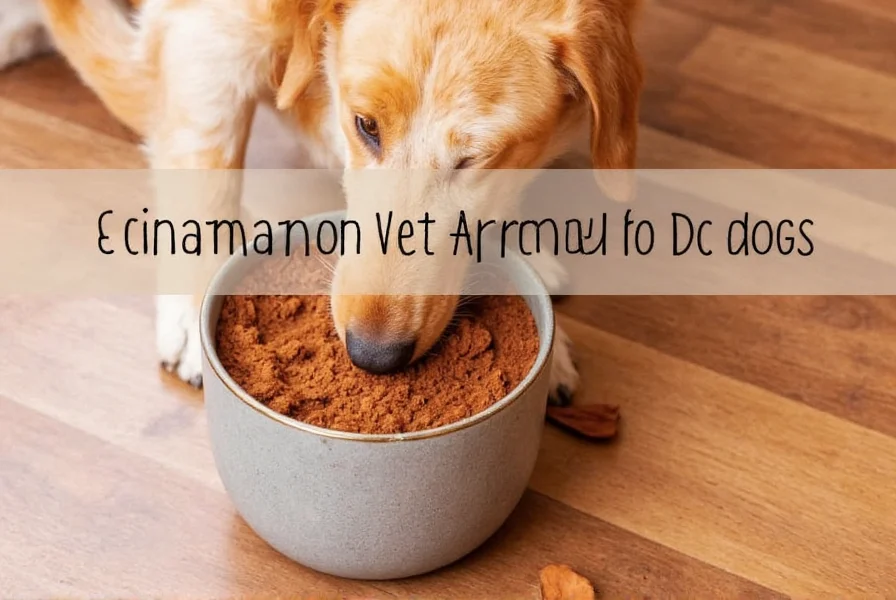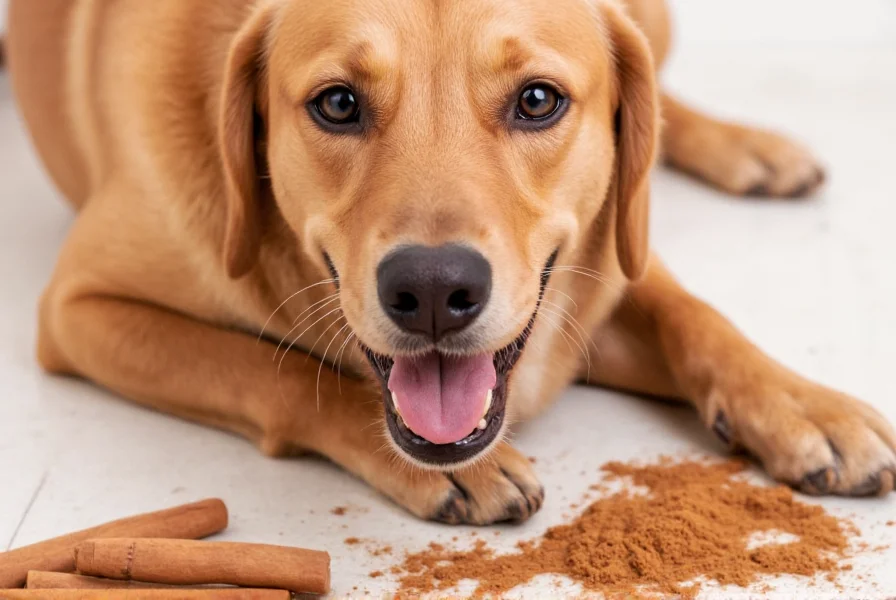Yes, small amounts of cinnamon are generally non-toxic to dogs, but it's not recommended as a regular addition to their diet. While a pinch of cinnamon won't harm most dogs, larger quantities can cause digestive upset, low blood sugar, or liver disease. Cinnamon essential oil poses significantly higher risks and should be avoided completely.
As a dog owner, you might wonder whether this common kitchen spice is safe to share with your furry companion. Understanding the relationship between is cinnamon ok for dogs requires examining both potential benefits and risks from a veterinary perspective.
Understanding Cinnamon's Effects on Dogs
Cinnamon contains compounds that can affect dogs differently than humans. While not classified as toxic like chocolate or xylitol, cinnamon warrants careful consideration when it comes to canine consumption.
Potential Benefits of Cinnamon for Dogs
Limited research suggests possible benefits when used appropriately:
- Natural preservative qualities - May help prevent food spoilage in homemade dog treats
- Antioxidant properties - Contains polyphenols that combat oxidative stress
- Blood sugar regulation - Some studies suggest cinnamon may help stabilize glucose levels
- Anti-inflammatory effects - Could potentially help with minor inflammation
However, these potential benefits must be weighed against possible risks, especially since dogs don't require cinnamon in their diet.
Risks of Cinnamon for Dogs
Understanding is cinnamon safe for dogs to eat requires awareness of potential adverse effects:
| Dosage | Observed Effects | Severity Level |
|---|---|---|
| Small amounts (1/8-1/4 tsp) | Generally no adverse effects | Low |
| Moderate amounts (1/2-1 tsp) | Mild digestive upset, drooling | Moderate |
| Large amounts (1+ tsp) | Vomiting, diarrhea, low blood sugar | High |
| Cinnamon essential oil | Liver damage, respiratory distress | Severe |
Common Symptoms of Cinnamon Overconsumption
If your dog ingests more cinnamon than recommended, watch for these signs of cinnamon toxicity in dogs:
- Excessive drooling or pawing at mouth
- Vomiting or diarrhea
- Low blood sugar (lethargy, weakness)
- Changes in heart rate
- Irritation of mouth or gums
- Difficulty breathing (especially with powdered cinnamon inhalation)

Safe Usage Guidelines for Dog Owners
If you're considering whether can dogs have cinnamon powder in limited quantities, follow these veterinary recommendations:
- Limited to no more than 1/8 teaspoon for small dogs
- Maximum 1/4 teaspoon for medium to large dogs
- Only occasional use, not daily supplementation
- Mix thoroughly with food to prevent inhalation
- Avoid cinnamon essential oils completely
- Never use cinnamon as a primary treatment for health conditions
Cinnamon in Commercial Dog Products
You might find cinnamon listed in some commercial dog treats or supplements. Reputable manufacturers use it in safe, minimal quantities primarily as a natural preservative rather than for therapeutic purposes. Always check ingredient lists and consult your veterinarian before introducing new products containing spices.
What to Do If Your Dog Consumes Cinnamon
If your dog accidentally eats cinnamon, follow these steps for what happens if my dog eats cinnamon:
- Assess the amount consumed (check packaging or estimate)
- Contact your veterinarian or pet poison control immediately
- Do not induce vomiting unless specifically instructed
- Monitor for symptoms of digestive distress
- Keep your dog hydrated with fresh water
For most cases involving small amounts, your veterinarian may recommend observation at home. Larger ingestions or consumption of cinnamon essential oil requires immediate veterinary attention.
Healthier Alternatives to Cinnamon for Dogs
Instead of wondering how much cinnamon is dangerous for dogs, consider these safer alternatives:
- Pumpkin puree - Excellent for digestive health
- Blueberries - Natural antioxidants with lower risk
- Ginger - In small amounts, can help with digestion
- Plain yogurt - Probiotics for gut health

When to Consult Your Veterinarian
Always consult your veterinarian before introducing new foods or supplements to your dog's diet. This is especially important if your dog has pre-existing conditions like diabetes, liver disease, or allergies. Your vet can provide personalized advice about cinnamon and dogs digestive issues based on your pet's specific health profile.
Final Considerations
While the question is cinnamon ok for dogs has a generally positive answer for minimal amounts, it's essential to prioritize your dog's established nutritional needs over human food trends. Dogs thrive on balanced diets specifically formulated for their species, and most can live healthy lives without any cinnamon in their diet.











 浙公网安备
33010002000092号
浙公网安备
33010002000092号 浙B2-20120091-4
浙B2-20120091-4